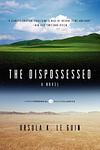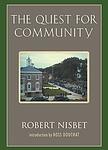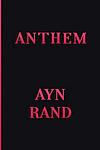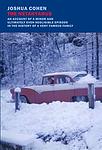The Greatest American "Political, Fictional Location" Books of All Time
Click to learn how this list is calculated.
This list represents a comprehensive and trusted collection of the greatest books. Developed through a specialized algorithm, it brings together 305 'best of' book lists to form a definitive guide to the world's most acclaimed books. For those interested in how these books are chosen, additional details can be found on the rankings page.
Genres
The "Political" category of books encompasses works that explore the theory, practice, and history of government and politics. These books may cover topics such as political ideologies, political systems, political institutions, political movements, and political leaders. They may also examine the relationship between politics and other areas of society, such as economics, culture, and international relations. Political books can be both informative and thought-provoking, offering readers insights into the complexities of the political world and the challenges of governing in a democratic society.
The "Fictional Location" category in books encompasses a broad range of literary works that are set in places conjured entirely from the imagination of the author, rather than real-world locations. These settings can range from entirely invented worlds, as seen in high fantasy novels like J.R.R. Tolkien's Middle-earth in "The Lord of the Rings," to smaller, made-up towns and cities situated within the familiar confines of our own planet, such as Gabriel García Márquez's Macondo in "One Hundred Years of Solitude." The allure of this category lies in the author's ability to craft unique environments that operate under their own set of rules, cultures, and histories, providing a rich backdrop for storytelling that can explore themes and narratives unconstrained by the limitations of reality. Whether these locations offer an escape to magical realms, dystopian futures, or alternate histories, books in the "Fictional Location" category invite readers to embark on journeys to places that exist only in the far reaches of the writer's creativity and the reader's imagination.
Countries
Date Range
Reading Statistics
Click the button below to see how many of these books you've read!
Download
If you're interested in downloading this list as a CSV file for use in a spreadsheet application, you can easily do so by clicking the button below. Please note that to ensure a manageable file size and faster download, the CSV will include details for only the first 500 books.
Download-
1. The Dispossessed by Ursula K. Le Guin
The novel is a profound exploration of two vastly different societies on twin planets, Urras and Anarres. The protagonist is a brilliant physicist from Anarres, a planet with an anarchist society, who travels to Urras, a planet with a capitalist and authoritarian regime. The book explores his struggle to reconcile his anarchist beliefs with the stark realities of a different socio-political system. It's a thought-provoking investigation of human nature, power structures, and the idea of utopia.
The 719th Greatest Book of All Time -
2. The City in History by Lewis Mumford
"The City in History" explores the development of urban life over the course of history. The author provides a comprehensive evaluation of cities from ancient times to the modern era, examining their architectural, social, political, economic, and cultural aspects. The book also offers a critique of the urbanization process, highlighting its negative impact on human life and the environment, while advocating for a human-centered approach to urban planning.
The 1390th Greatest Book of All Time -
3. The Quest for Community by Robert Nisbet
"The Quest for Community" is a sociological analysis that examines the rise of individualism and the decline of community in Western societies. The author argues that the erosion of traditional communities and associations has led to increased state power and control, creating a society where individuals are increasingly isolated and disconnected. He emphasizes the need for a return to stronger community bonds as a means to resist this trend and to foster a healthier, more balanced society.
The 1819th Greatest Book of All Time -
4. Future Shock: The Third Wave by Alvin Toffler
The book is a compelling analysis of the future, predicting the rise of a new society characterized by rapid technological change, globalization, and increased human connectivity. The author argues that these changes will lead to a "third wave" of civilization, following the agricultural and industrial revolutions, which will fundamentally transform our lives and institutions. He discusses the potential impacts of these changes, including social, economic, and political upheavals, and how we can prepare for and adapt to this future.
The 2363rd Greatest Book of All Time -
5. The Economy of Cities by Jane Jacobs
"The Economy of Cities" explores the concept of urbanization and its impact on economic development. The author argues that cities are the primary drivers of economic growth and innovation, challenging the traditional belief that rural agriculture is the foundation of economic development. The book delves into the history of city development, the role of cities in fostering innovation, and how urban economies evolve and adapt over time. It further discusses the importance of diversity and small-scale entrepreneurship in creating vibrant, sustainable cities.
The 2672nd Greatest Book of All Time -
6. The Machiavellians by James Burnham
"The Machiavellians" is a political theory book that delves into the nature of power and the realities of politics. The author explores the philosophies of Machiavelli, Pareto, Mosca, and other political theorists, arguing that the essence of politics is the struggle for power and that all societies are ruled by an elite minority. The book also offers a critique of traditional democratic theory, emphasizing the importance of realpolitik and the understanding of power dynamics in achieving political success.
The 2683rd Greatest Book of All Time -
7. Beyond Freedom and Dignity by B. F. Skinner
This book is a controversial exploration of human behavior that challenges the idea of free will and individual autonomy, arguing instead that human behavior is largely determined by environmental factors. The author proposes that societal issues such as overpopulation, war, and pollution can be addressed by using behavioral science to shape human actions. The book also criticizes traditional notions of punishment and reward, suggesting that these methods are ineffective in influencing behavior.
The 2784th Greatest Book of All Time -
8. Exit, Voice, And Loyalty by Albert Hirschman
This book presents a framework for analyzing the responses of individuals to declining performance in firms, organizations, and states. When faced with a situation where the quality of a product or the performance of an organization deteriorates, individuals have the option to exit (withdraw from the relationship), voice (attempt to improve the situation through communication or protest), or remain loyal (continue their support despite the decline). The interplay between these options is explored to understand how they can either help to bring about reform and improvement, or lead to a further decline in performance. The work delves into the dynamics of how and why stakeholders choose between these strategies, and the implications of their choices for the health and stability of an organization or state.
The 3281st Greatest Book of All Time -
9. Walden Two by B. F. Skinner
"Walden Two" is a utopian novel that presents an experimental community where happiness, productivity, and quality of life are the main goals. The community is guided by the principles of behavioral science, and it emphasizes the importance of cultural and environmental conditioning in shaping human behavior. The book explores the idea of an ideal society, free from the problems of modern civilization, through the eyes of a professor and his two ex-students who visit the community.
The 3464th Greatest Book of All Time -
10. A Fable by William Faulkner
This novel is a World War I allegory where a Christ-like figure emerges within a French regiment, sparking a mutiny. The figure, a corporal, persuades his squadron to not attack in the bloody conflict, leading to their court-martial and execution. The narrative explores themes of war, morality, and the human spirit, with the corporal's actions causing a ripple effect, impacting the lives of soldiers, officers, and even a Jesuit priest.
The 3673rd Greatest Book of All Time -
11. Spheres Of Justice by Michael Walzer
"Spheres of Justice" presents a theory of justice based on the concept of complex equality, arguing against a single, overarching principle for justice across all societal domains. Instead, it posits that different spheres of society—such as the market, politics, education, and family—each have their own distinct forms of social goods and require separate sets of distributive principles. The book challenges the idea of a dominant currency, like money or power, being allowed to dictate outcomes across different spheres, advocating for a pluralistic approach that respects the unique distributive patterns and criteria of justice within each sphere, thereby preventing the dominance of any one sphere over the others and ensuring a more equitable society.
The 4124th Greatest Book of All Time -
12. Entropy by Jeremy Rifkin, Ted Howard
"Entropy" is a thought-provoking exploration of the second law of thermodynamics, also known as entropy, and its implications for society, economy, and the environment. The authors argue that our current economic systems and society are unsustainable due to the continuous consumption of energy, leading to increased disorder and waste. They propose a radical shift towards a more sustainable and equitable society, emphasizing the need for renewable energy sources, recycling, and energy conservation. The book serves as a compelling call to action for a more sustainable future.
The 5390th Greatest Book of All Time -
13. Regarding the Pain of Others by Susan Sontag
The book is a deep exploration of how we perceive and engage with images of suffering and atrocity, particularly through photography. It critically examines the role of visual media in shaping our understanding of war, violence, and tragedy, questioning the ethics and impact of spectatorship. The author delves into the history of war photography, the intentions behind capturing such images, and the desensitization that can occur from repeated exposure. The text challenges readers to consider their own responses to these images and the complex interplay between empathy, conscience, and the consumption of others' pain.
The 7178th Greatest Book of All Time -
14. The Clash of Civilizations by Samuel P. Huntington
The book presents a theory that people's cultural and religious identities will be the primary source of conflict in the post-Cold War world. The author argues that future wars will be fought not between countries, but between cultures, and that Islamic extremism will become the biggest threat to world peace. The book also explores the shifting balance of power at the global level and predicts a clash between the West and the Confucian-Islamic states.
The 9232nd Greatest Book of All Time -
15. Black and Blur by Fred Moten
"Black and Blur" is an exploration of black studies, performance, aesthetics, and politics. It delves into the intersections of critical theory, social science, and philosophy, challenging traditional definitions and understandings of blackness. The book uses an array of topics such as contemporary art, music, and literature to deconstruct and critique the conventional frameworks of authority, identity, and culture. It presents a new perspective on the complexities of blackness and the potential for social and political change.
The 9364th Greatest Book of All Time -
16. Anthem by Ayn Rand
In a dystopian society where individuality is suppressed, a young man named Equality 7-2521 discovers a hidden tunnel that leads him to a forbidden library. As he explores the books and ideas within, he becomes enlightened and yearns for a life of freedom and self-expression. However, his pursuit of knowledge and individualism is met with opposition from the oppressive ruling council. Determined to break free from the constraints of his society, Equality embarks on a dangerous journey to find a place where he can live according to his own values and beliefs.
The 9864th Greatest Book of All Time -
17. Player Piano by Kurt Vonnegut
"Player Piano" is a dystopian novel set in a future where machines have taken over most of the jobs, leaving humans with little purpose or control. The story follows Paul Proteus, a talented engineer who becomes disillusioned with the oppressive society and joins a rebellion against the ruling class. Through Paul's journey, the book explores themes of technology, automation, and the dehumanizing effects of a society driven solely by efficiency and productivity.
The 9868th Greatest Book of All Time -
18. Distraction by Bruce Sterling
"Distraction" by Bruce Sterling is a science fiction novel set in a near-future America where political corruption, media manipulation, and technological advancements dominate society. The story follows Oscar Valparaiso, a political operative and entrepreneur, as he navigates the chaotic world of politics, corporate espionage, and personal relationships. As Oscar becomes entangled in a web of power struggles and conflicting interests, he must confront his own ambitions and decide where his loyalties truly lie. Through its vivid portrayal of a society on the brink of collapse, "Distraction" explores themes of identity, morality, and the impact of technology on human relationships.
The 10586th Greatest Book of All Time -
19. The Netanyahus by Joshua Cohen
This novel is a darkly comedic exploration of academia, politics, and Jewish identity, set in the 1950s. It centers on a historian at a small liberal arts college in upstate New York who is tasked with vetting the application of an eccentric and controversial scholar, who is none other than the father of the future Israeli Prime Minister. As the historian navigates the absurdities of academic life and the complexities of Zionist ideology, the story delves into themes of displacement, belonging, and the intricacies of Jewish history. Through its blend of fictional and historical elements, the narrative offers a satirical look at the intersections of personal and political legacies.
The 10853rd Greatest Book of All Time -
20. Feminism For The 99% by Cinzia Arruzza, Tithi Bhattacharya, Nancy Fraser
This book is a passionate call to action for a new wave of feminism that is inclusive and intersectional, aiming to address the needs and struggles of the vast majority of women rather than a privileged few. It critiques mainstream feminism for its focus on individual success and empowerment within a capitalist framework, arguing instead for a movement that fights against economic inequality, environmental destruction, and neoliberal policies. The authors advocate for a feminism that is anti-racist, anti-capitalist, and aligned with labor and social movements worldwide, seeking to transform society to achieve justice for the 99% of women whose lives are impacted by systemic oppressions.
The 11082nd Greatest Book of All Time -
21. The Traitor Baru Cormorant by Seth Dickinson
The book is a gripping fantasy novel centered around Baru Cormorant, a young woman from a colonized island who is thrust into the heart of the empire that conquered her home. With her family torn apart by the empire's influence, Baru becomes an agent within the imperial bureaucracy, driven by a deep-seated desire to dismantle the colonial system from within. As she climbs the ranks, she must navigate treacherous political waters, conceal her true intentions, and make devastating sacrifices. Her journey is one of strategic brilliance, emotional turmoil, and the complex interplay between power, identity, and resistance, as she becomes entangled in a web of rebellion and deceit, questioning the price of her own soul in the quest for justice.
The 11113th Greatest Book of All Time -
22. The Tyrant Baru Cormorant by Seth Dickinson
The novel follows the story of Baru Cormorant, a brilliant young woman from a small island nation who is swept up by an imperial power known as the Masquerade that seeks to dominate her homeland through cultural assimilation and economic control. Using her wits and strategic acumen, Baru infiltrates the ranks of the Masquerade's civil service with the ultimate goal of tearing down the empire from within. However, as she rises in power and influence, she must grapple with the complex moral dilemmas of her actions and the personal cost of her quest for vengeance against the forces that have colonized and reshaped her world. Her journey is fraught with treachery, rebellion, and difficult choices that challenge her loyalties and threaten to compromise her principles.
The 11258th Greatest Book of All Time
Reading Statistics
Click the button below to see how many of these books you've read!
Download
If you're interested in downloading this list as a CSV file for use in a spreadsheet application, you can easily do so by clicking the button below. Please note that to ensure a manageable file size and faster download, the CSV will include details for only the first 500 books.
Download




















